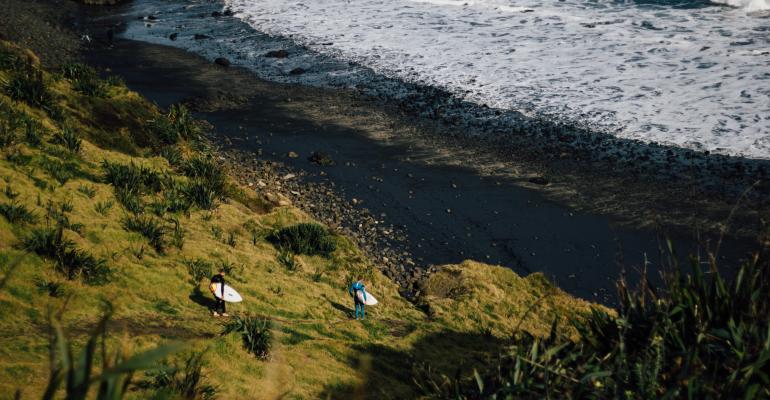- AUTHORWhat the MV Rena grounding and climate adaptation have in common: Treaty of Waitangi obligations
- August 5 2019
What the MV Rena grounding and climate adaptation have in common: Treaty of Waitangi obligations

In the aftermath of the MV Rena grounding in the Bay of Plenty, complaints were taken to the Waitangi Tribunal and the Environment Court about the way local and central government handled the disaster.
Once the Rena had stranded on Otaiti (Astrolabe Reef), the Crown acted quickly – making decisions about if, how and when to remove the wreck. In its haste, it overlooked its Treaty of Waitangi obligations to actively protect and partner with mana whenua. The Tribunal found that the Crown had breached the Treaty, and in particular let iwi down by not facilitating consultation – putting at risk “their ability to engage meaningfully in the resource consent [RMA] process.”
New research, led by Catherine Iorns (Victoria University of Wellington) and funded by the Deep South Challenge: Changing with our Climate, explores the Crown’s potential liability under the Treaty of Waitangi for decisions about how we might adapt to climate change. The research suggests that the MV Rena decision, along with other key case studies, provides guidance for the Crown about its Treaty duties in relation to climate adaptation decision-making.
It finds, for example, that the Crown should not create policies and laws that undermine the ability of iwi to protect the whenua (land). In the case of climate adaptation, this is difficult, because while this duty is on the Crown, many – if not most – climate adaptation decisions are currently being made by local and regional councils under the Resource Management Act (RMA). Further, as with the MV Rena, the Treaty obligations of active protection and partnership, especially the facilitation of consultation, will apply, even in commercial negotiations with an overlay of confidentiality and urgency.
The research explores five case studies (at Matatā, the Hawkes Bay, Mōkau River, Waitara and in Whaingaroa/Raglan), and concludes that central government should be playing more of a role in guiding local government decision-making processes, to ensure the Treaty principles of partnership, governance, reciprocity, active protection, good faith, consultation and development are followed in climate adaptation decision-making processses.
Active protection suggests the maintenance of Māori relationships with the coast. Iorns’ research finds that central government funding (as the Treaty partner) should therefore first be directed towards maintaining these relationships.
Where managed retreat needs to be discussed, especially from ancestral lands, tangata whenua will likely need to involved as equal partners in decision-making – a relationship involving more than “significant consultation” by the Crown. If there is to be managed retreat from the coast, relationships with traditional territories would still need to be maintained even in the absence of ownership. For that, access to coastal territories would be required.
The climate adaptation measures needed both now and in the future will likely have significant implications for the protection of iwi taonga/assets under Article 2 of the Treaty of Waitangi. Iorns finds that central and local government need to keep in mind the wider picture of upholding Treaty principles, rather than the minimum conditions in the RMA, in order to avoid modern Treaty breaches in relation to these assets. This necessarily implies that more attention must be paid to factual and legal issues in this area, to ensure that the Treaty of Waitangi is upheld, as we change in time for our changing climate. Please find the full report and more information about Catherine Iorns’ research here.